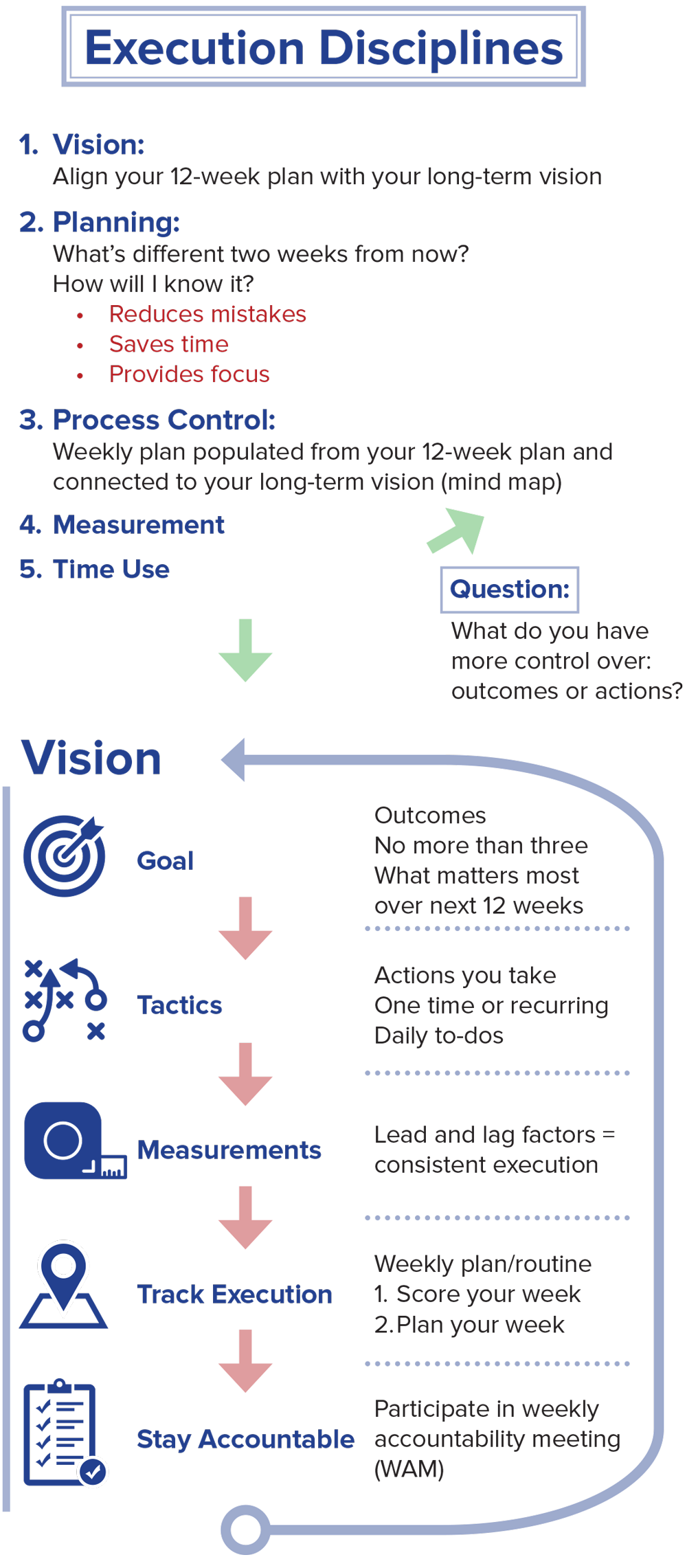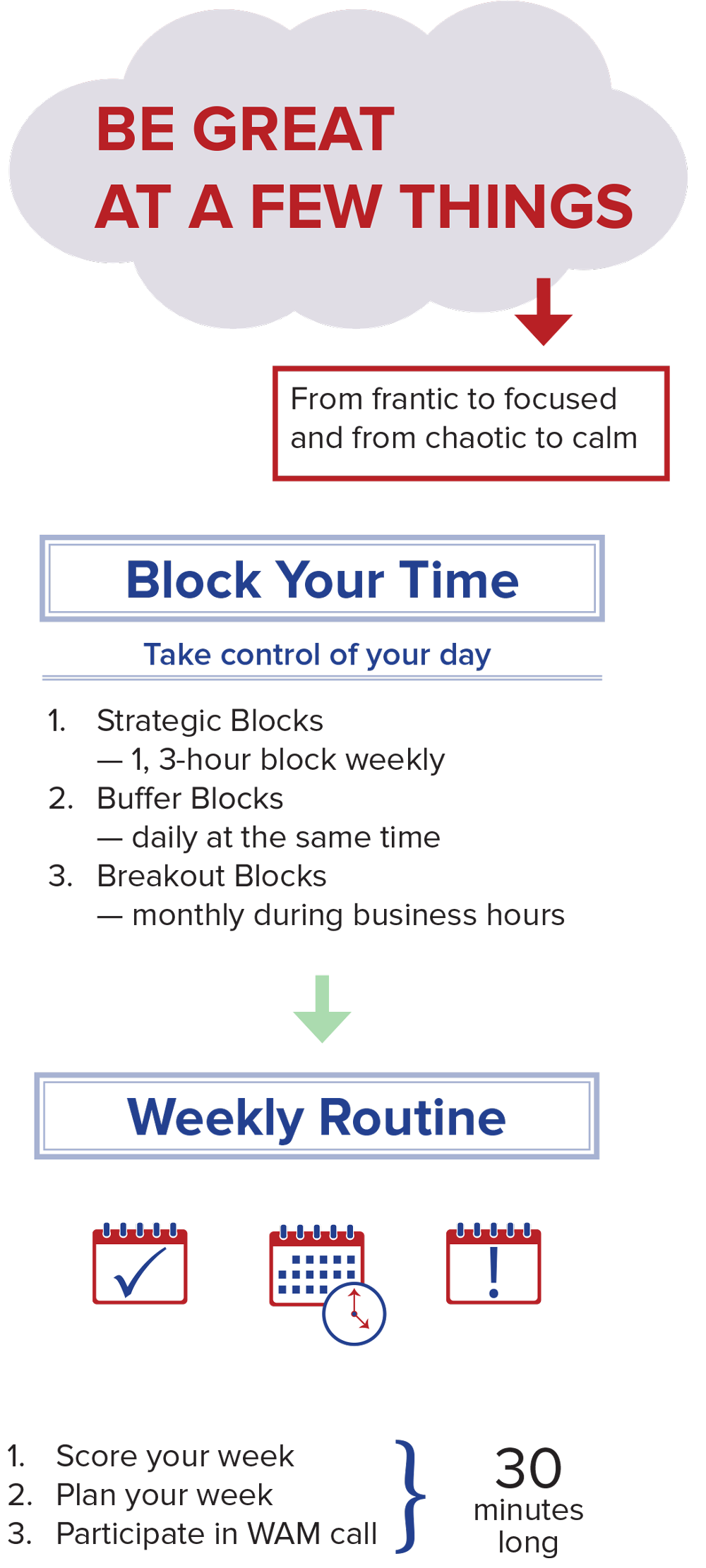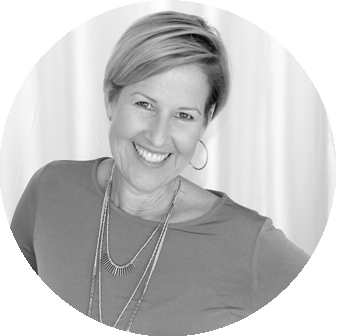— Ralph Waldo Emerson
even years ago, I was uncomfortably stuck making fear‐based decisions, not sleeping, feeling anxious, stressed and unhappy. I was the president and CEO of a professional services firm that was growing and bringing in big revenue numbers. Everything should have been great, but personally, I was struggling.
I was miserable, but I couldn’t imagine living another way. I thought I had no choice but to stay where I was, doing what I had always done. Everyone else was telling me that this was major success, but I kept thinking, is there something more?
I was overwhelmed with too many responsibilities and not enough time for myself and doing the things I loved — vision, strategy, execution, culture and connecting with employees and customers. I felt perpetually behind, wondering how others managed life’s demands. I craved inner peace. I wanted to take the time to balance health, well-being and achievement, but I didn’t know where to start.
Then the company I worked for went up for sale, and I experienced a Harajuku Moment. This phrase, coined by author Malcolm Gladwell, refers to a time when something nice to do becomes something necessary to do. Before the company went up for sale, I thought it would be nice to leave. Now it was necessary. It was my time. After 20 years of growing a business, I was now taking the leap of my life. It was the change I was starving for, and it was scary.
I struck out on my own. I failed, fell down and jettisoned suitcases full of old stories, thoughts and beliefs that were holding me back from letting my light shine. I asked for help from others who were ahead of me on this road less traveled. I dug myself into the trenches and did the hard work. I succeeded. I created the life and business I love. Now I teach others how to get there in a quick, straightforward way. My calendar reflects what is important to me.
They also want to spend their time on what matters — family, work, play, health, community. They want to balance health, well-being and achievement.
Instead they find themselves working IN the business instead of ON the business. They get pulled into time use that does not match their values or what they enjoy.
- Their health and relationships suffer
- They make compromises that erode self-trust
- They miss out on important moments in life
- They feel isolated and not in control of their time
- A simple process that allows them to just show up, have space to think, receive guidance and support, and walk away with a plan of action.
- A guide to facilitate their process and take care of everything so they can focus on discovering what is theirs to do.
The following method gives busy executives a plug-and-play process to gain clarity and direction, achieve goals faster and easier and enjoy life.
It combines strategy, execution and mindfulness, and is based on four critical books (including one of my own), my 25 years of growing a successful business and mindfulness-based leadership practices:
— Italian Proverb

Other successful executives also consistently block time away to think: Bill Gates, AOL’s former CEO Tim Armstrong, and Jeff Weiner, CEO of LinkedIn.
Schedule two days away from the office once a quarter. Focus on your vision, values and goals. Align your personal vision and business vision in order to live the life you want and define success on your terms. Create a plan of action to execute over the next 12 weeks. Have weekly accountability calls to keep yourself on track.
When you act in a way that matches your values, life goes smoother and you feel more content. When your actions don’t match your values, life feels “wrong.”


List your top three values. Faith, family, love, serenity, service, excellence, balance and curiosity are some examples. Post them where you can see them daily.
- When does your use of time accord with your values?
- How would you spend your time differently if your time practices were more aligned with your values?
Using this approach, detailed in the graphic, provides a clearly defined, easy to follow, step-by-step format that provides focus, saves times and reduces mistakes.
Essentialism: The Disciplined Pursuit of Less, by Greg McKeown
The Big Leap: Conquer Your Hidden Fear and Take Life to the Next Level, by Gay Hendricks, Ph.D.
Savvy Woman in 5 Minutes A Day: Make Time for a Life That Matters, by Moira Lethbridge, M.Ed.
Identify an accountability partner. Participate in a weekly call to discuss goals accomplished and actions to take.
It works. My clients have written books, given TEDx talks, reduced their work hours by 50 percent while making the same amount of money, hiked the John Muir Trail for three weeks, started podcasts, spent more time with their families, unplugged from work on weekends and slept — a lot more.
To feel as excited when you get up in the morning as I do.
To remember who you are and forget who you are not.
My Harajuku Moment seven years ago turned out to be a great gift. It allowed me to fulfill my highest potential and to love my life — something I couldn’t do or say seven years ago. You deserve to create the life you were meant to live. Expand your capacity for success and feeling good. If not now, when?

Moira Lethbridge, M.Ed., is a strategist, facilitator, executive coach, speaker and author of Savvy Woman in 5 Minutes A Day: Make Time for A Life That Matters. She draws on 25 years of organizational experience and success to help individuals and organizations grow their business and do more of what they enjoy. Previously, she was president and CEO of a professional services firm, and was named one of SmartCEO magazine’s “Smart 100” in the Washington, D.C., area for three years running. She is certified to administer leadership assessment tools, including The Leadership Circle Profile (TLCP), the Myers-Briggs Type Indicator (MBTI), and the Herrmann Brain Dominance Instrument (HBDI).